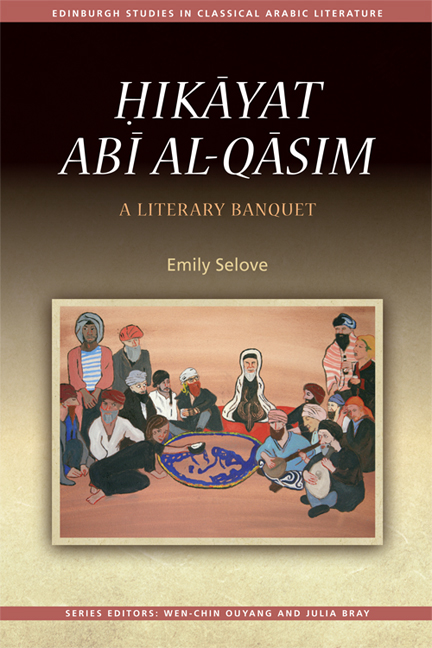1 - A Sampling of the Ḥikāya
Published online by Cambridge University Press: 05 September 2016
Summary
In order to provide the reader with an idea of the contents of the Ḥikāya and the varieties of registers and subjects that it includes, I will here summarise the events it portrays and translate some representative passages. I will refer back to this section at various points in my argument.
Because the Ḥikāya is brim-full of quotations and doubtful readings, a fully footnoted version of the translation here, tracing all of its many quotations to their sources, would result in an unwieldy tangle of notes not directly related to my purpose, which is to provide the reader with the flavour of the text. As is repeatedly stated throughout this study, the language of the Ḥikāya is extremely obscure, and any attempt to translate it must necessarily be regarded as provisional.
The author first mentions some of the many sources from which he gathered his material, and introduces his text as an imitation of a Baghdadi man he once knew. The text begins with a traditional invocation of God and introduction of the author of the text. Classical Arabic works often begin with a praise of God, and the introduction here claims to abbreviate and replace this conventional section of praise of the Divine. It is likely, however, that such a section never existed, and that this itself is a mere literary convention adopted by the author.
In the name of God, the Merciful, the Compassionate:
The distinguished author, Abū al-Muḥahhar Muḥammad ibn Aḥmad al-Azdī, may God have mercy on him, after praising the Almighty as is His due, and wishing peace and blessings upon our lord Muḥammad and his family, wrote:
The kinds of literature I am inclined to select are the speeches of the Bedouins and old Arabic poetry, followed by the fantastic and flowery imaginings of well-read scholars, as well as the marvellous innovations born of the genius of the prominent modern poets. These are the sources I have drawn from in my book, adorning myself with their work and often passing it off as my own; I have heard with my own ears the witticisms they have discussed at length and competed over. I have also included excerpts of my own poetry, letters that I have circulated, and records of literary gatherings that I have attended.
- Type
- Chapter
- Information
- Hikayat Abi al-QasimA Literary Banquet, pp. 31 - 69Publisher: Edinburgh University PressPrint publication year: 2016



